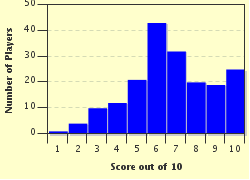Quiz Answer Key and Fun Facts
1. Your employer deposits a profit-sharing contribution into your 401(k) account. However, this money is not automatically yours. In this particular plan, you receive 30% of the money if you leave the company after one year, 60% after two years, and 100% after three or more years. What is the term for this sort of schedule?
2. If a 401(k) retirement plan has "automatic enrollment," then the company can force an employee to contribute to the plan.
3. Some US companies allow their employees to withdraw part of their account in the event of a financial hardship. However, many use a limited definition of hardship which only allows for six possible types of need. Which of the following would NOT qualify as a hardship according to that list?
4. Some participants in 401(k) retirement plans mistakenly expect it to work like a savings account: it's your money, and you can take it out any time you want, right? In actuality, the IRS places tight restrictions on when you can withdraw your 401(k) balance. Which of the following is NOT considered a "distributable event" that will let you take out your money?
5. What are the tax consequences if a typical 35-year-old leaves the company and then takes his 401(k) account balance in cash?
6. You have left your job, and you need to do something with your 401(k) account. You do not want to be taxed on the money, so you decide to move it into your own Individual Retirement Account (IRA.) What is the term for this transfer?
7. If you leave the company, and do not withdraw your account promptly, the employer may be able to "force" the funds out of the plan.
8. If a person needs a little extra money, he may be able to take a loan against his 401(k) account. Which of the following is NOT true regarding the limitations placed on 401(k) loans?
9. Just as there are traditional and Roth IRAs, so there are traditional and Roth 401(k)s.
10. Finally, what document would a typical employee read in order to better understand his 401(k) plan?
Source: Author
tensainomiko
This quiz was reviewed by FunTrivia editor
trident before going online.
Any errors found in FunTrivia content are routinely corrected through our feedback system.

